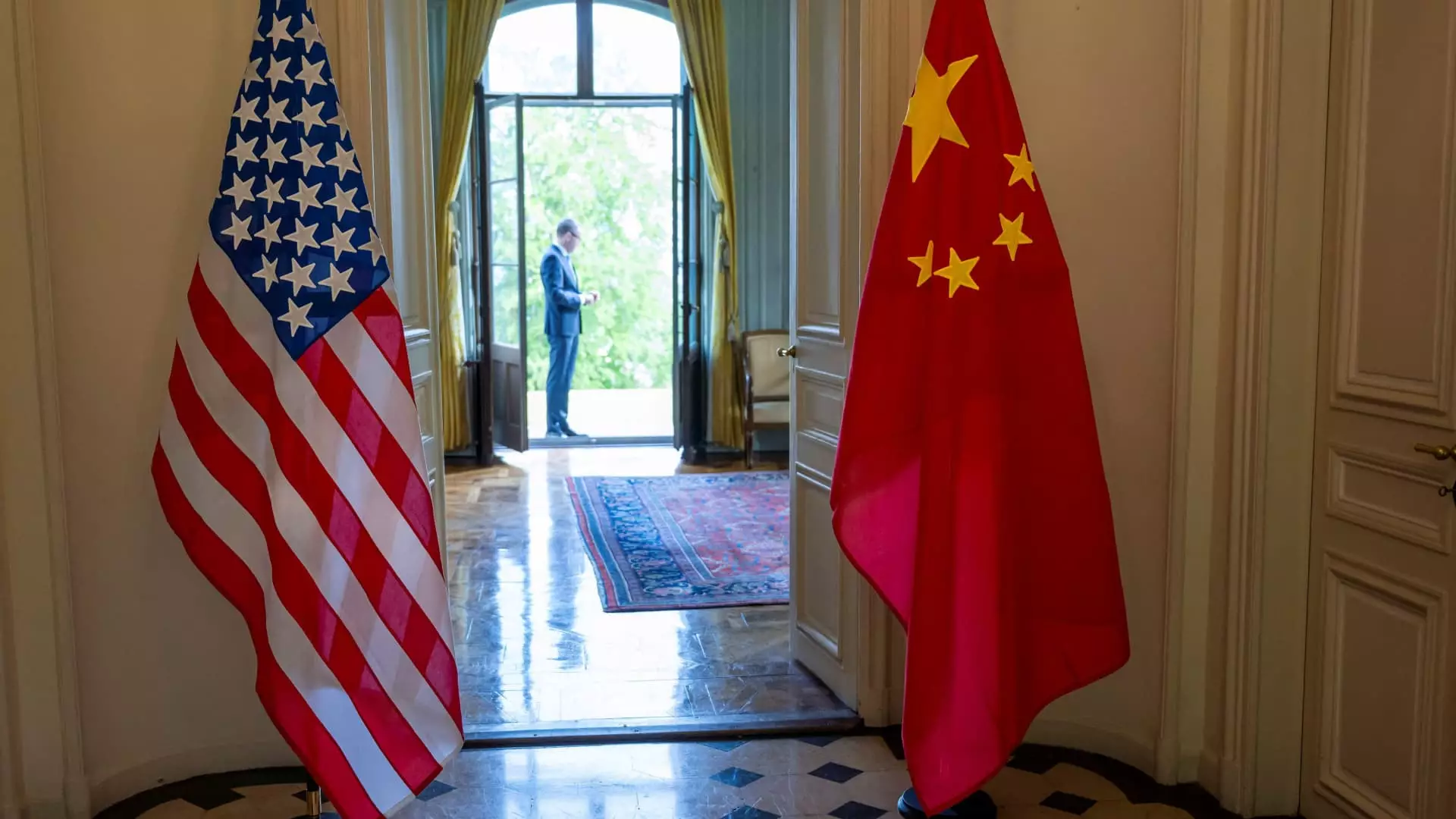The relationship between the United States and China has long been viewed as a precarious balancing act, teetering between cooperation and confrontation. Recent remarks from U.S. Treasury Secretary Scott Bessent illuminate the profound challenges facing this critical bilateral relationship. With trade talks “a bit stalled,” the urgency for direct communication between leaders is alarmingly apparent. Bessent’s suggestion of an impending dialogue hints at the inevitable need for both sides to confront their growing list of grievances, yet the path forward is fraught with uncertainty and risks.
Last month, amidst a backdrop of escalating tensions, a temporary agreement was reached—an offer that felt more like a Band-Aid than a sustainable solution. In Switzerland, the two superpowers tacitly acknowledged the need for mutual concessions by rolling back recent tariff increases. However, the rollback has a shelf life, and the events since suggest that neither party has genuinely committed to the underlying issues plaguing this interaction. As the deadline looms, it becomes clearer that superficial agreements will not mend the deep-seated rifts that define U.S.-China relations.
The Thorny Reality of Economic Control
The ongoing friction has been exacerbated by the U.S.’s relentless push for technological restrictions directed at China, which has incited anger and suspicion in Beijing. This is a dangerous game of geopolitical chess where both players seem unwilling to back down. The reluctance on China’s part to ease restrictions on rare earth elements is revealing; it underscores their determination to maintain control over resources crucial to global technology supply chains. In this game, each country is preparing for the long hauls rather than seeking out immediate relief.
Moreover, Bessent’s suggestion that both leaders need to weigh in to resolve complex issues highlights a fundamental problem—the imbalance in crisis management. The expectation that personal relationships between head-of-state can suddenly switch gears from political tension to fruitful negotiation is naive. President Trump and President Xi Jinping last engaged in meaningful discussion months ago, during a time when the political climate was drastically different. It is presumptuous to expect that a simple phone call can clear the air or engender immediate goodwill when a series of missteps has already laid the groundwork for mutual distrust.
The Consequences of Isolationist Policies
The recent decision by the Trump administration to revoke Chinese student visas only adds additional layers to this already chaotic relationship. Such isolationist measures have resonated poorly, painting the U.S. as an unwelcoming and antagonistic figure on the global stage. The Chinese government’s vehement condemnation of this decision reflects the broader worries that the American strategy is increasingly characterized by zero-sum thinking, divorced from the complexities of global interdependence.
Critics warn that decisions such as these undermine the educational and cultural exchange necessary for fostering understanding and collaboration. U.S. perceptions and policy must evolve; otherwise, the friction only serves to fuel nationalist sentiment in China, reducing the opportunities for genuine dialogue and mutual benefit. History teaches us that trade wars rarely end well—both economically and politically. It raises a crucial question: what is the ultimate goal of such policies if not to engender a stronger, more cooperative international community?
Hope and Complexity Amidst Turbulence
As global economic giants, the U.S. and China are intricately intertwined. Their ability to navigate this storm lies not just in mutual concessions but in acknowledging the complexity of these negotiations. Promoting a more balanced approach that addresses deep issues while fostering collaboration could lead to more sustainable diplomatic relations. However, it is vital for decision-makers to engage in honest, candid discussions that involve more than just surface-level diplomacy.
The world is watching as this situation evolves. The stakes are high, and waiting for spontaneous reactions from either side is not a strategy; it’s a gamble. If leaders remain entrenched in their positions, the repercussions will be felt far beyond the walls of Washington and Beijing. The nations must proactively engage with one another, embracing complexity, if they seek a future marked by progress rather than conflict.

